Kesong Wu
Joint Source-Channel Optimization for UAV Video Coding and Transmission
Aug 13, 2024
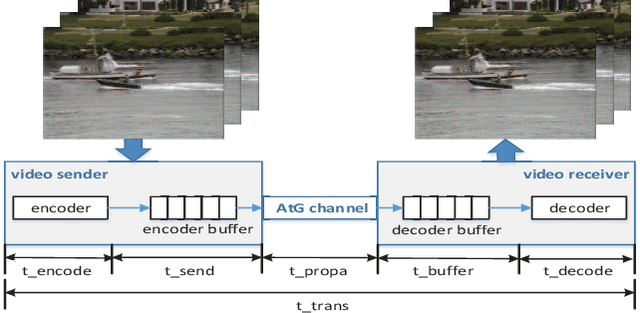
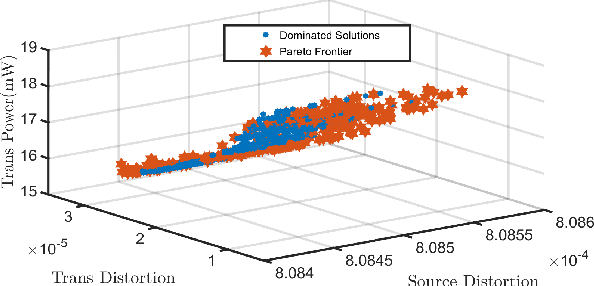
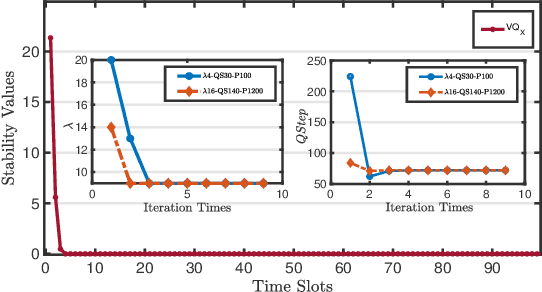
Abstract:This paper is concerned with unmanned aerial vehicle (UAV) video coding and transmission in scenarios such as emergency rescue and environmental monitoring. Unlike existing methods of modeling video source coding and channel transmission separately, we investigate the joint source-channel optimization issue for video coding and transmission. Particularly, we design eight-dimensional delay-power-rate-distortion models in terms of source coding and channel transmission and characterize the correlation between video coding and transmission, with which a joint source-channel optimization problem is formulated. Its objective is to minimize end-to-end distortion and UAV power consumption by optimizing fine-grained parameters related to UAV video coding and transmission. This problem is confirmed to be a challenging sequential-decision and non-convex optimization problem. We therefore decompose it into a family of repeated optimization problems by Lyapunov optimization and design an approximate convex optimization scheme with provable performance guarantees to tackle these problems. Based on the theoretical transformation, we propose a Lyapunov repeated iteration (LyaRI) algorithm. Extensive experiments are conducted to comprehensively evaluate the performance of LyaRI. Experimental results indicate that compared to its counterparts, LyaRI is robust to initial settings of encoding parameters, and the variance of its achieved encoding bitrate is reduced by 47.74%.
QoE-Driven Video Transmission: Energy-Efficient Multi-UAV Network Optimization
Jul 23, 2023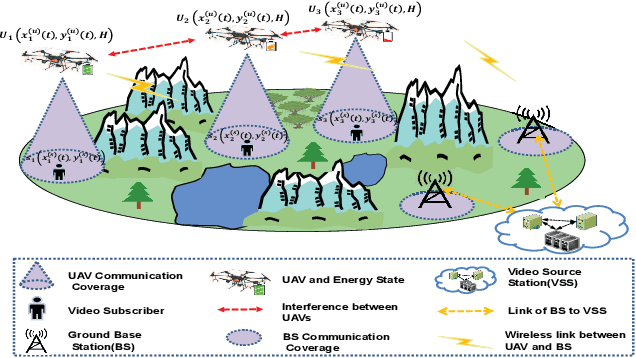
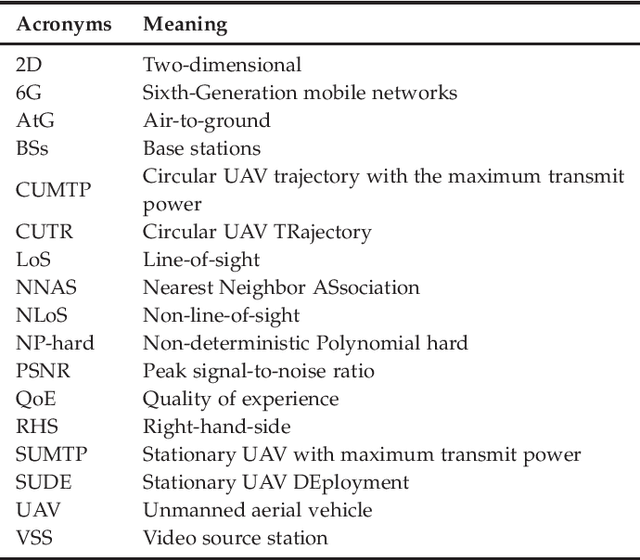
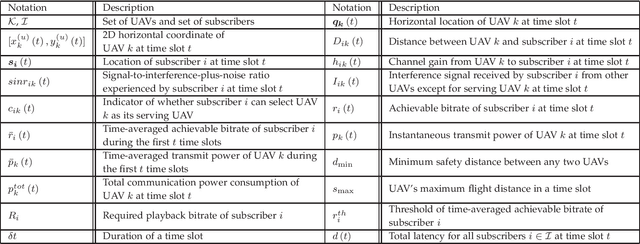
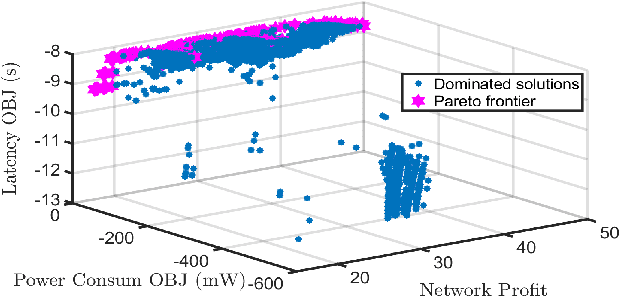
Abstract:This paper is concerned with the issue of improving video subscribers' quality of experience (QoE) by deploying a multi-unmanned aerial vehicle (UAV) network. Different from existing works, we characterize subscribers' QoE by video bitrates, latency, and frame freezing and propose to improve their QoE by energy-efficiently and dynamically optimizing the multi-UAV network in terms of serving UAV selection, UAV trajectory, and UAV transmit power. The dynamic multi-UAV network optimization problem is formulated as a challenging sequential-decision problem with the goal of maximizing subscribers' QoE while minimizing the total network power consumption, subject to some physical resource constraints. We propose a novel network optimization algorithm to solve this challenging problem, in which a Lyapunov technique is first explored to decompose the sequential-decision problem into several repeatedly optimized sub-problems to avoid the curse of dimensionality. To solve the sub-problems, iterative and approximate optimization mechanisms with provable performance guarantees are then developed. Finally, we design extensive simulations to verify the effectiveness of the proposed algorithm. Simulation results show that the proposed algorithm can effectively improve the QoE of subscribers and is 66.75\% more energy-efficient than benchmarks.
 Add to Chrome
Add to Chrome Add to Firefox
Add to Firefox Add to Edge
Add to Edge